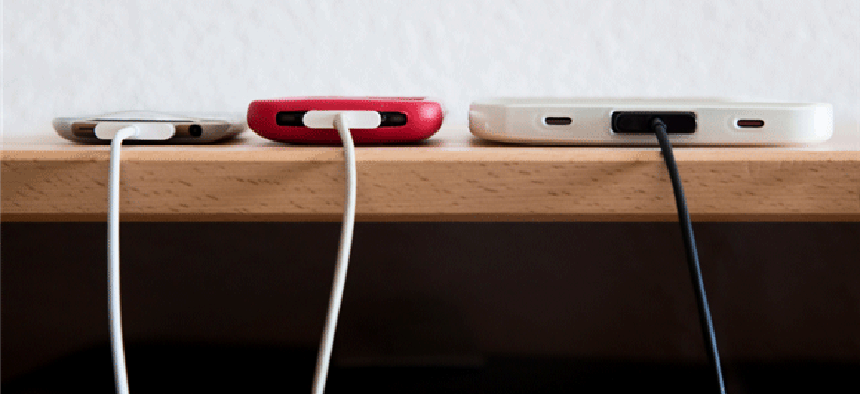Connecting state and local government leaders
A power amplifier technology developed by an MIT spinoff would let mobile devices operate on half the power.
Batteries are the most unappreciated technology in use today. They almost never make the list of important innovations that changed modern society, though many of the technologies that do, like smart phones, rely heavily on them. For public-sector officials, staying connected means staying powered up. And for first responders and military personnel, battery life can become more like a lifeline whose importance can’t be overstated.
Of course, battery-makers haven’t done much to attract attention -- the technology hasn’t evolved very much or very quickly over the past 20 or even 50 years. But battery life for mobile devices nevertheless could change in a big way if the firm Eta Devices has anything to say about it. In February 2013, its team is presenting a paper at the Mobile World Congress in Barcelona showing ways to vastly increase battery life.
Interestingly enough, the MIT spinoff isn’t trying to build a better battery. There are lots of teams attempting to do that, from Northwestern University, which has found a way, in theory, to put more lithium ions onto an anode, to IBM, which seems to have a whole division constantly trying to come up with new battery designs. Instead, the Eta Devices team is trying to come up with a way to make devices that depend on batteries, especially cell phones, more efficient.
The reason Eta is staying out of the battery-making game is that there are a lot of factors that go into making a modern battery, and improvements in one area can counteract gains in others. For example, users want batteries with high energy density, which is their ability to hold a charge. They also want to be able to recharge batteries as quickly as possible, which is a factor called power density. Then durability comes in to play, which is how many times a battery can be charged and drained before it doesn’t work anymore. Increased energy density often leads to reduced power density, and durability almost always suffers if the other areas are improved. Without coming up with a whole new hardware tech, we may have reached the upper limit of efficiency with batteries in all areas.
The Eta team is staying out of that all together, which I think is a smart move. Instead they have invented a process they say will make radios and phones more efficient. It’s a complicated process full of equations and test graphs, but it can be summed up by saying that cell phones waste a lot of power trying to push out a signal. This is due both to the logic inside phones as well as the inefficient way packets on cellular networks are handled.
An example of phone inefficiency can be demonstrated when users are outside their normal coverage area, deep inside a building or simply away from a tower. In those cases, phones will ramp up the power of their transmitters, trying to search for a signal. the phone will get hotter and use more power, draining the battery sometimes twice as fast as normal. The phone is basically in an enhanced talk mode when it should be in standby. But even if it has a signal, a phone or other mobile device is probably using more power than it should, because it’s programmed to do that to overcome any inefficiency in the network.
To some extent, we have tested this phenomenon in the GCN lab. When we reviewed the Wilson Sleek cell phone booster, we sent a tester into the hinterlands between cities and away from cell phone towers. Not only was the Sleek able to remain connected in more places, but battery life also lasted longer because the phone wasn’t constantly searching for a signal.
The Eta phone design, called Asymmetric Multilevel Outphasing Architecture for Multi-standard Transmitters, is a lot smarter at determining how much power is needed for a call or data burst. It will only allow phones or other mobile devices to power up to the point that is required, and go no further. Unfortunately, this has to be coupled on the other end, at the tower, with a new efficient packet encoding scheme called Network Coding. The two work together to dynamically determine the power needed for any phone.
It might be a lot to ask cellular providers to re-install new software throughout their networks, but this is probably easier than trying to develop a new battery technology from scratch, which often involves working at the molecular level and years of research and development. And there is incentive for companies. The ones that implement such a technology may be able to rightfully claim longer battery life and faster transmission rates without changing much on the hardware side. Agency employees in the field would certainly be interested in phones like that.
For government, this might mean that those wireless lifelines would last a lot longer, be more efficient and stronger, without actually increasing the weight or size of the physical gear. And that would be a win for everyone involved, if this new technology works as intended.



